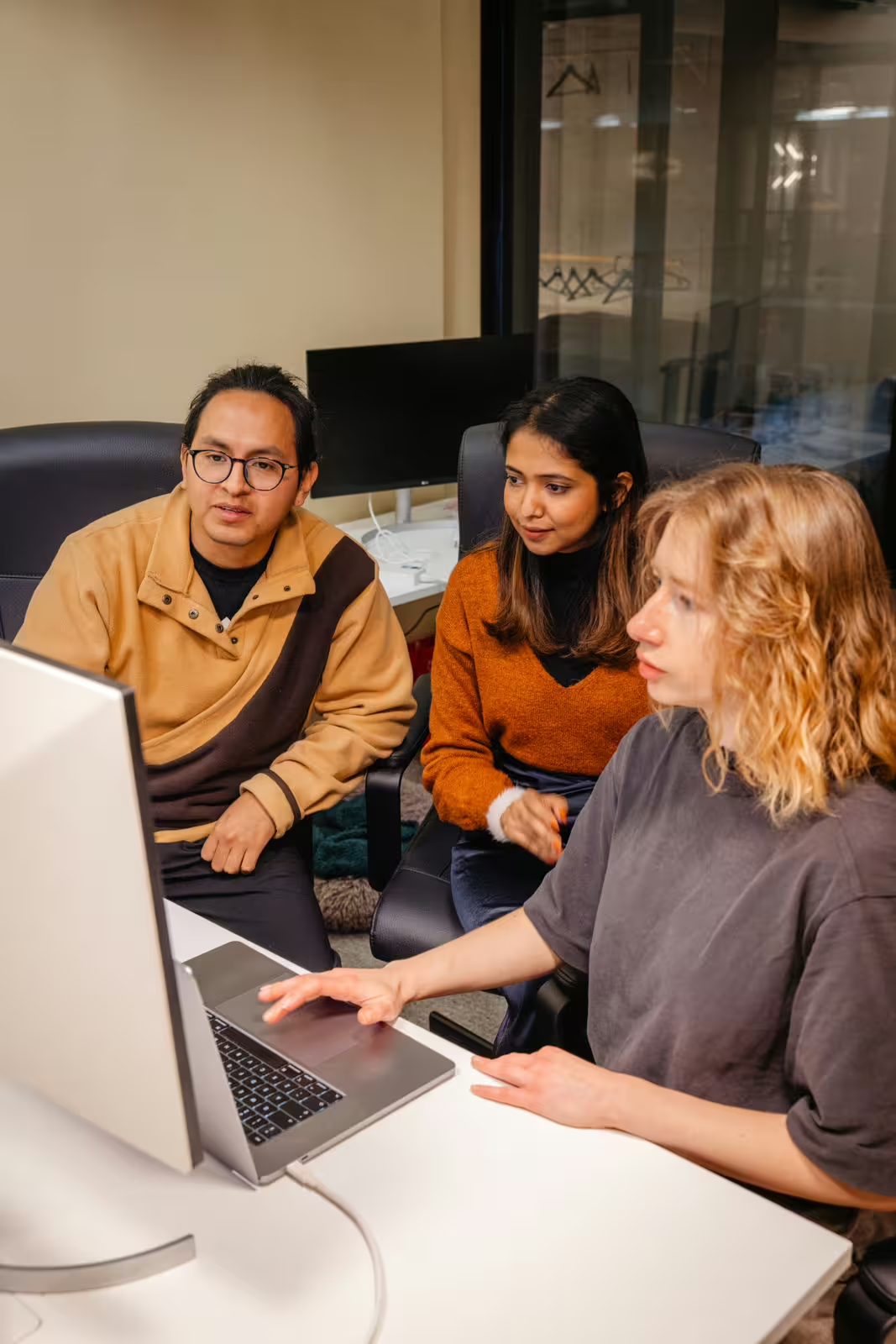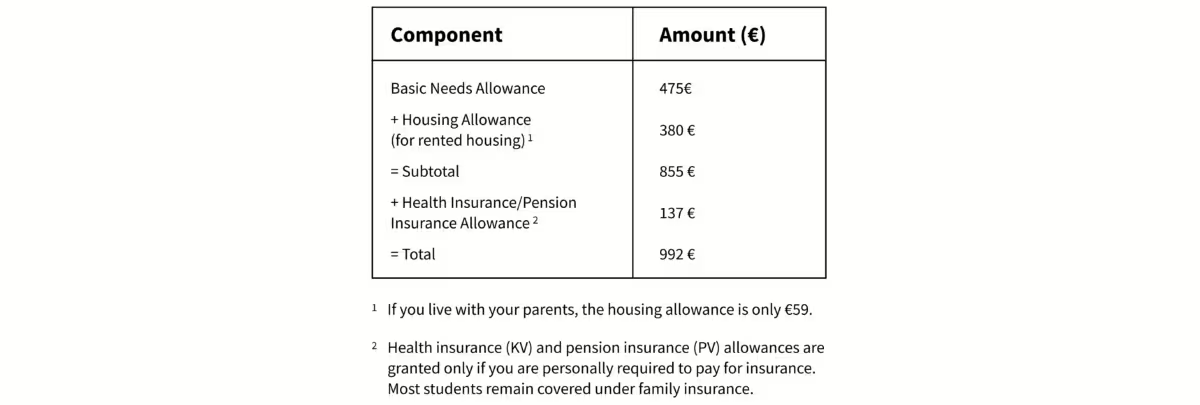
A Master’s degree is often the next logical step after completing a Bachelor’s to further qualify yourself and achieve professional goals. However, this advanced degree comes with not only new academic challenges but also noticeably higher costs. To overcome these financial hurdles, you can also apply for BAföG during your Master’s program. Here’s how it works and what requirements you need to meet.
Requirements for BAföG in a Master’s Program
The basic requirements for BAföG eligibility in a Master’s program are the same as for a Bachelor’s. However, there are a few additional criteria:
- Bachelor’s Degree:
- Type of Master’s Program:
- Age Limit:
To receive BAföG during a Master’s program, you must hold a Bachelor’s degree. Other qualifications, such as a diploma or state exam, typically do not make you eligible for BAföG.
There is no requirement for your Master’s to be related to your Bachelor’s degree, but it must be a full-time, job-qualifying program completed within two to four semesters.
The current age limit for BAföG eligibility in a Master’s program is 45 years. This means you must start your Master’s program before your 45th birthday. Exceptions are outlined in the section “Independent BAföG for Master’s Programs.”
How to Apply for BAföG in a Master’s Program
If you received BAföG during your Bachelor’s, you might think you can simply file a follow-up application for your Master’s. However, this is not the case. Since a Master’s is considered a new phase of education, you must submit a new application and will receive a new funding number.
The BAföG application process for a Master’s is the same as for a Bachelor’s, with identical forms. You’ll also need to submit additional documents, such as proof of enrollment and health insurance coverage. To ensure timely processing, submit your application at least two months before the start of your program.
Transition Period Between Bachelor’s and Master’s
Since 2016, BAföG funding for a Bachelor’s program ends in the month you receive your final grade. If your grade isn’t available within two months after your last exam, funding ends by that time.
For a Master’s program, you can begin receiving BAföG in the month when the following conditions are met:
- 1. Your Master’s program has officially started, and you are either provisionally accepted or enrolled.
- 2. Your BAföG application is fully completed and submitted.
- 3. You have provided proof of your Bachelor’s degree to the BAföG office.
If there is only one month between your final Bachelor’s exam and the start of your Master’s program, you can receive uninterrupted BAföG funding.


Maximum Funding Amount
As of the winter semester 2024/25, the maximum monthly BAföG amount is €992, broken down as follows:
You can find out what tuition fees you will have to pay when studying at CODE Berlin and what funding options are available here.

Independent BAföG for Master’s Programs
BAföG is usually calculated based on parental income, but exceptions allow for independent BAföG in the following cases:
- You have completed vocational training and worked for three years (totaling at least six years).
- You worked for five years between turning 18 and starting your Master’s.
- You are over 30 at the start of your program.
- You are an orphan, or your parents’ whereabouts are unknown.
If you are over 45 and starting a Master’s, you may still qualify for independent BAföG under certain conditions, such as:
- Obtaining your Bachelor’s via a second-chance education program and beginning your Master’s directly after.
- Qualifying for your Bachelor’s through professional experience and starting your Master’s immediately afterward.
- Delaying your Master’s due to family or personal reasons.
Maximum Funding Duration: How Long Can I Receive BAföG for My Master’s?
BAföG funding for a Master’s program typically ends after the standard program duration (two to four semesters, depending on the program). Financial support beyond this period is only available for recognized reasons, such as:
- Illness or disability
- Pregnancy
- Caring for a child under 14 years
- Providing care for a close relative with at least care level 3
- Delays caused by your university
- VFirst-time failure of a required exam
Special Repayment Conditions
Repayment of BAföG loans begins five years after the end of the standard funding period for each educational phase. This means repayment for your Bachelor’s loan continues independently of your Master’s funding and cannot be deferred.
If you are required to repay BAföG during your Master’s, you can apply for a repayment deferral. Additionally, BAföG loans have a debt cap: the total repayment amount for both Bachelor’s and Master’s loans is limited to €10,000.
Do you have further questions about your funding options while studying at CODE? Get in touch with us—we’re here to help!
Do you have further questions?
Leave us your contact details and a member of our team will get in touch with you directly!